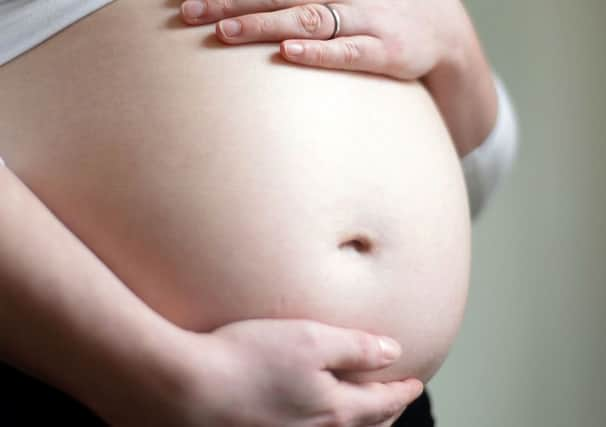Hospitals fail 30% of mums with birth complications


An investigation shows that almost one-third of women receive substandard care when they develop life-threatening complications, with some doctors making mistakes with how they monitor and treat mothers in labour.
The numbers of complicated births is rising in Scotland, due to soaring rates of obesity and greater numbers of older women giving birth. But the report, carried out by Healthcare Improvement Scotland, has found that medical staff are failing to manage these cases consistently, with errors made during their care.
Advertisement
Hide AdAdvertisement
Hide AdCritics last night said they were horrified by the results, calling it a “scandal” that women are “not being cared for properly”, and demanding more doctors and midwives on wards.
Hospitals are now to review their results, in a bid to improve the care of the women who suffer complications.
Around 58,000 women give birth in Scotland each year and although the vast majority of births are straightforward, one in 140 suffer life-threatening medical complications.
The most serious is a major obstetric haemorrhage, which 339 women experienced last year, a figure which is rising because increasing numbers of women have risk factors, including being over the age of 35 and being obese.
Haemorrhages occur when women bleed heavily after giving birth and are more likely after an emergency Caesarean. Causes can include problems with the placenta or the womb.
The Healthcare Improvement Scotland Confidential Audit of Severe Maternal Morbidity examined serious complications between 2003-12 in all 17 of Scotland’s maternity hospitals. These affected a total of 3,475 women, the vast majority of which were major haemorrhages.
The report found that while most hospitals stuck to guidelines, there were “deficiencies” in how medical teams identified which women were at risk, and in “certain elements” of their “resuscitation and medical management”.
This included not adhering to recommendations on some of the medications and treatments used; and failing to chart women’s progress appropriately.
Advertisement
Hide AdAdvertisement
Hide AdIn 2012, the latest year for which figures are available, just 70 per cent of women had “appropriate” or “optimal” care. In previous years the number receiving optimal care has ranged from 60-80 per cent.
The report calls for “improvements” in the way maternity hospitals staff their wards and assess women’s risk of complications.
A spokesman for Healthcare Improvement Scotland said: “This report recognises the progress that has been made but also the work that remains. Severe complications in child birth are uncommon but when they do occur are extremely worrying for patients and their families.
“While the stillbirth rate among women who experience severe maternal morbidity has declined substantially, we have also identified a number of areas where improvement is required. Post partum haemorrhage across the developed world is rising and this is associated with obesity, a higher proportion of women giving birth over the age of 40 years and an increase in multiple pregnancies.”
But last night parenting groups expressed alarm about the findings. Netmums co-founder Siobhan Freegard said: “It’s very worrying to see major haemorrhage problems are rising. Money, career and social pressures mean older mums are now a fact of life as many women are not in a position to have children younger.
“But the fact that older and heavier mums are no longer unusual means it is a scandal they are not being cared for properly. There needs to be stringent guidelines which medical staff must adhere to.”
Elizabeth Duff, senior policy adviser for the National Childbirth Trust, said: “We urge those in charge of maternity services in Scotland to provide more continuity of care.”
Professor Alan Cameron, vice president for clinical quality at the Royal College of Obstetricians and Gynaecologists called for more consultants in wards. “It is vital that we move towards 24/7 consultant presence in the larger units,” he said.
He added: “Clinicians must be aware of the known risk factors and take these into account when counselling women about place of delivery to ensure the safety of both the mother and the baby.”